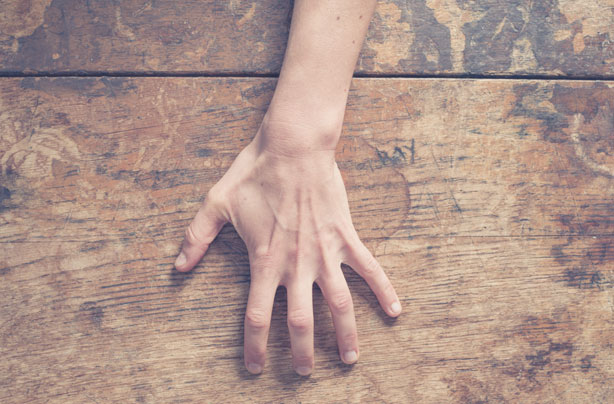Why do I have an itchy bum?
Treat an itchy bottom with our easy to follow guide

Having an itchy bum might be embarrassing, but if you suffer from an itchy bottom then you'll know there's nothing more irritating and uncomfortable.
Did you know that having an itchy bum is actually pretty common, and could affect 5% of us at some time in our lives? When we talk about an itchy bum we're referring to a strong urge to scratch the skin around your anus, and there are lots of different reasons as to why you might be suffering from some serious scratching, including threadworm, haemorrhoids and fungal infections.
Although it's unpleasant and annoying, anal itching doesn't usually mean anything serious, but if you have pain as well as itching it's always best to see your GP. If you are pregnant, you may want to read this useful guide to itching in pregnancy.
If you find out what's causing your itchy bum, it's usually easy to treat. Take a look at our guide to find out what could be causing your itchy bottom.
What causes an itchy bum?
Because an itchy bum isn't actually a condition in itself but rather a symptom of something else, it's important to make a note of the conditions that could be causing your itchy bum instead. These include:
- Bacterial infections
- Skin conditions (such as eczema - where the skin becomes dry, flaky and sore)
- Fungal infections
- Piles (haemorrhoids)
- Threadworms (most common in children)
What are the causes of these conditions?
There are several reasons why one of the conditions listed above could be causing your itchy bum.
Warmth: Being warm can actually make an itchy bum worse, and being in bed at night can trigger this. Fungal infections result from warm, damp conditions, so this could be what's causing the itching. Moisture: Sweat and any discharge can make an itchy bum a lot worse, because of the nature of the position of your anus. Wet wipes could also have the same effect. Perfumes, chemicals and some materials: Using moist toilet tissues with added chemicals and perfumes could irritate the skin around your anus, leading to a skin condition. The same can also happen if you're using fragranced or coloured bath bubbles, shower gel, and even certain materials like woollen clothing or blankets. Washing too much (or not enough): In the same way that moisture leads to an itchy bum, poor hygiene can also be responsible for anal itching, but so can cleaning too much - especially if you use harsh soaps. Stress and anxiety: The NHS list stress and anxiety as being two triggers of an itchy bum, so if you think you might have either of these conditions it's important to speak to your doctor. Scratching: Bad news for scratchers, because scratching the area could actually make the area worse by causing more damage to already delicate and sore skin.
Parenting advice, hot topics, best buys and family finance tips delivered straight to your inbox.

What are the treatments for an itchy bum?
If you think you might have piles, then there are severeal treatments you can buy over the counter at your local pharmacy, including creams and suppositories.
If you're not suffering with stress or anxiety, and you don't have piles, then it could be that you're either not staying dry, or using the wrong kinds of products around your bottom. Try cutting out certain products that you use daily, such as soaps and shower gels, and try changing the material of the knickers you wear in case that's what's causing the itching.
It's still possible to keep clean and dry without using harsh soaps, so try something really gentle in your shower without any added chemicals, like Sanex shower gel.
Above all remember not to scratch the area - if you have an infection such as threadworms then these can be easily spread, and if the itching is down to a skin condition then scratching can make a sore, inflamed area much worse.